Top 10 Greatest Empires of All Time
 The Roman Empire was a post-Republican period of ancient Rome that lasted from 27 BC to 476 AD. It was characterized by an autocratic form of government and large territorial holdings in Europe, North Africa, and parts of Asia. The Roman legal system and Latin language have had a lasting impact on the... read more
The Roman Empire was a post-Republican period of ancient Rome that lasted from 27 BC to 476 AD. It was characterized by an autocratic form of government and large territorial holdings in Europe, North Africa, and parts of Asia. The Roman legal system and Latin language have had a lasting impact on the... read more The Romans were truly superior to any of the other civilizations listed here. Out of all the civilizations listed, the Romans spread their dominance the most, lasting over 2000 years without any major outside empire taking them out.
For their time, they were extremely advanced. This is something that most people here fail to remember. While the people of the Germanic tribes and Britons were living in huts, and the Chinese and Japanese in Asia were living in houses made of wood, partly of paper, and tile-roofed, the glorious Romans were living in architectural marvels.
All of the empires that succeeded the Roman Empire wouldn't have been possible if the Roman Empire hadn't fallen.

The British Empire was primarily an economic empire, built on great money, profit, and blackmail. This foundation made it extremely powerful, enabling it to grow larger. It is still considered the largest empire to have ever existed.
At its peak, it ruled over one-third of the world's land and population. Had it not been for the Nazi Empire, it is likely the British Empire would still be around today, possibly even larger than it was. The Nazi Empire associated the concept of empires with imperialism and negativity.
By the end of World War II and the fall of the Nazi Empire, the British Empire had lost its financial strength (it was broke), needed to rebuild, and the British public began to view the Empire as wholly negative, believing it should be dismantled from within.
However, the decline wasn't solely due to public demand. Aware of the worsening financial situation, the leaders of the British Empire chose to avoid violent ends and peacefully decolonized. Some regions still desired to remain colonies even today, but the British public did not want an empire. This led to the formation of the Commonwealth. However, some regions still wished to be colonies, so the concept of overseas territories was created.
Like the Commonwealth, these territories have their own economy and government, with the goal of eventually becoming independent nations. They share the same monarch as the head of state, continuing the tradition of the monarchy. Personally, I believe the British Empire caused more harm in its decolonization efforts, leaving the problems to the people, than it did in its attempts to conquer other economies.

In his heyday, he had the upper hand against all his enemies in the east, west, and south. He defeated all the troops created by fighting alone. He took civilization to the places he ruled for 600 years.
He never exploited. It is the best empire after the Roman empire. It cannot be compared with other colonial and invading states. They are not the Empire.
The Ottoman Empire was a great empire founded on fairness and justice. It was an excellent country for immigrants and was notably diverse. This empire remained strong from 1299 to 1922, maintaining its strength until the 19th century.
It had exceptional rulers, arguably much better than those of the British Empire, such as Mehmed the Conqueror and Suleiman the Magnificent. The Ottoman Empire presented the world with some of its wonders, although the world did not always respond in kind. The Russians were not even a threat until the Ottomans weakened. However, this doesn't mean that the Russians were strong simply because they defeated a weakened opponent. I assert that none of the empires would have been a match against the Ottoman Empire during its golden age.

They were the best warriors in history. They had genius commanders. Their war strategy was invincible. Maybe they didn't live up to the name of the Empire, but they were the best warriors.
The largest contiguous land empire the world has ever seen. Genghis Khan and his descendants had a monumental impact in shaping human history. This includes the influence on Yuan China, the Golden Horde, the Timurids, and the Mughals.
No other civilization in history saw as much success in combat as the Mongols. They are the greatest military force the world has ever seen. If you change the outcome of just one or two events, they literally would have conquered the entire civilized world. No other civilization has had such a massive impact on the world in such a short period of time.

The Spanish Colonial Empire ranks as the fourth largest, behind the British, Mongols, and Russians. Although it may not have a legacy as prominent as the Roman Empire or the British Empire, it exerted significant influence in the New World. While the Spanish were not the first Europeans in the New World, they were pivotal in making the rest of Europe aware of a new continent's existence. This is in contrast to the Vikings, who believed they were in Greenland. The global empires as we know them today wouldn't exist without the Spanish and Portuguese empires.
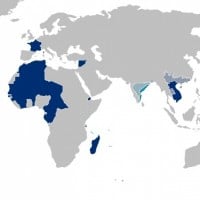
Napoleon threw the country away when he attacked Russia, though.
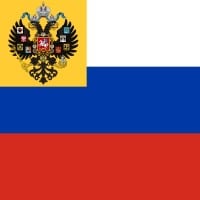
I think the Russian Empire is in the middle. Sure, they sided with the Allies in World War I, but they weren't always allies, as shown very clearly in the Battle of Balaklava. They also had very outdated weapons in the Great War and failed to catch up with the rest of Europe, both economically and militarily.
From the Baltic to the Bering Sea, from Asia to the plains of Europe, the Russian Empire was vast and mighty. It was only due to the incompetence of her leaders and bad luck that she fell.
The Russian Empire was great, and it was an oppressive nation. Perhaps Lenin was right, but I think the Tsars of Russia were the true heroes in Russian history.
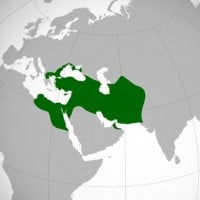
You have no idea how large, powerful, and culturally diverse this empire was. The only force that could stop this vast empire was the combined might of the Mongolian army and the Islamic Arab Army during the Islamic Conquest of Persia.
Had one of those armies stood back, the Persian empire could still be standing strong right now.
Achaemenid Persia was the world's first superpower, holding the largest population percentage of any empire - 44 percent of the world's population, the highest figure for any empire. The Persian king Cyrus the Great was the first to bear the title "The Great."
The Persians laid the groundwork for the modern world by introducing unprecedented concepts like freedom of religion, free will, and being the first to outlaw slavery. Their empire covered an area of approximately 8,500,000 square kilometers.

The Egyptian Empire was responsible for numerous innovations. These ranged from inventing the world's first ships and navy to advancements in science, mathematics, architecture, medicine, pyramids, and engineering, among others. Many civilizations around the world employed Egyptian physicians and teachers, and often these civilizations would send their princes to be educated in Egypt.
The Egyptian Empire was vast during its time. Even the Mesopotamians were subject to the Egyptian Empire through treaties. These jet black Africans established the best empire of its time. The architecture of Egypt was widely imitated, and its capitals were among the largest in the world at that time.

It is the country of Alexander the Great, one of the greatest people in history. They became the best warriors of their time with their war tactics. The only shortcoming is that the Empire did not live long. They were weak in state administration.
Macedonia was Hellenistic, but not Greek. They were literally looked down upon as savages by the Greek city-states until Philip II and Alexander.
Macedonia is not Greek. But it's nice to know some people are aware of that.
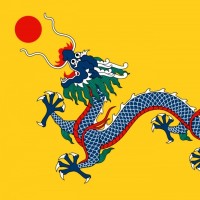
I don't really have an opinion on this one. It's just amazing that they actually survived about four centuries with so many wars and rebellions plaguing the country.
The Qing Dynasty was an empire that covered the whole of China, parts of Vietnam, Laos, Russia, Mongolia, Kyrgyzstan, and India. China is the best warfighting country in Asia, better than Japan, having won that much land starting from only the city of Beijing.
The Qing Empire was so populous that, at its relative height, it contained over a third of the world's population.
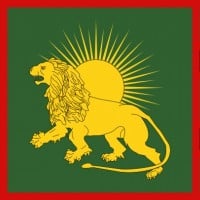
The Mughal Empire was an Islamic Empire that had the greatest territorial rule over India, ruling over today's Pakistan, Afghanistan, and most of Subcontinental India, then known as Hindustan, between 1526 and 1707. The Empire was founded by its first leader, the Timurid leader Babur, in 1526 when he defeated Ibrahim Lodi, the last of the Delhi Sultans at the first battle of Panipat. The word "Mughal" is the Persian word for "Mongol." The Mughal Empire was an Islamic Religious Empire.

This empire, set up by Napoleon Bonaparte, conquered powerful countries all over Europe: Prussia, Austria, Poland, the Netherlands, Spain, Portugal, and the Italian peninsula. It was ruled by an Emperor, only one, Napoleon. Unlike the Romans, who conquered barbarians, Napoleonic France conquered powerful countries (but not Great Britain).
It also invited allies such as Denmark-Norway, the Ottoman Empire, and, for a point in time, Russia, Sweden, Prussia, Austria, Persia, Spain, and the US.
Napoleon started small, from captain to general, dictator to emperor. France had a huge army and even conquered quite a bit of Russia and took Moscow for about a day. This was France's greatest period.
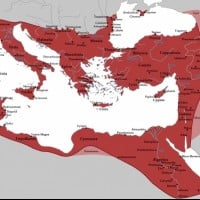
Tried to rebuild the Roman Empire, but failed.
Should be higher than the Nazi Empire.

One of the strongest empires in the world before World War I. It was technologically ahead and had one of the biggest armies in the world.
I hope that the German Empire reunites. All hail Otto Von Bismarck and the German Empire.
The Empire united by Bismarck defeated France and Austria while being puny.
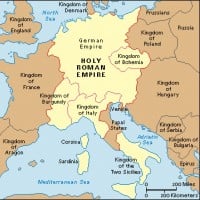
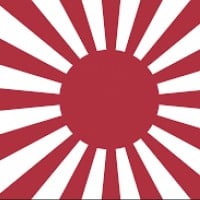
Japan was the most powerful country in Asia after the Meiji Revolution. To avoid becoming a colony, they created an empire that includes most of the countries in Eastern and Southeast Asia. No country could defeat it during the Second World War until America came along.
Part Japanese and proud (50 percent), so I can be a sushi ninja too, Mom! Fear the power of the great Japanese Empire. No one gives them enough credit for their power. I mean, the US isn't and has never been an empire, so why is it even on here?!
Japan was the most powerful single nation. Japan defeated the Russians and captured 80,000 alive over two years of war. Again, Japan defeated the British, capturing 140,000 alive in Singapore and then in Hong Kong. It was the British's largest surrender in history.
Actually, nowadays, people do not have enough information about ancient Japan. Remember, it took us two atomic bombs. Honestly, US soldiers were actually afraid of the Japanese and were losing the war in the Pacific. Just search for wars on Wikipedia about great Japan!
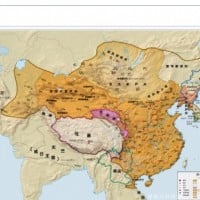
The most influential period in Chinese civilization was when tons of scholars from Japan, Tibet, and Korea came to adopt the Chinese characters and architecture.
Chinese dynasties are underrated. The Tang, at its peak, covered over 10 million square kilometers, making it one of the largest empires in history.
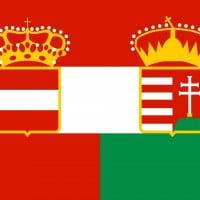
This is my favorite empire in history. I think it is interesting that the emperors of Austria-Hungary used royal marriages to increase relations with other countries and to become the Emperor of that country.


The Dutch Empire is one of the most underrated empires in history. Its territories included Indonesia, Belgium, Luxembourg, Brazil, parts of India, Taiwan, Sri Lanka, and South Africa, where Afrikaans is very similar to Dutch. They controlled the US states of Delaware, New Jersey, Rhode Island, and Connecticut. Additionally, they founded and controlled what is now New York City, whose boroughs still bear names derived from Dutch words. The city was originally called New Amsterdam.
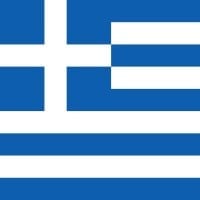
The Greeks were the best because they were so smart. They invented a lot, and the Romans stole the ideas, claiming they thought them up.
Greece is awesome and always will be. Goodbye and thank you.
Before the Caliphate split up, this was the mightiest of all the empires. Honestly, the Arabian Empire conquered more land than even Rome could, from Spain in the West all the way to the Russian Caucasus. Let's not forget that they were the ones to finally finish off Byzantium.
They also gave the world a great many things, including the basis for modern medicine (surgery). While the European nations fell into ignorance and chaos, this empire endured and prospered. Definitely should be in the top 10.
At the time, it was the largest empire the world had ever seen and is the fifth largest of all time. It extended from Spain, across North Africa, the Middle East, Pakistan, and the south of Russia. The empire led the world in technology with advancements in literature, mathematics, science, trigonometry, and medicine.
It also spread Islam across the world from Somalia to Kazakhstan. It is not talked about much due to the fact that Europe was in a Dark Age.
The Ottoman Empire is second, but it would not have been around without this. In size, it was more than five times as large as the Romans, and I would say that it had just as significant a cultural impact on its people. It spread Islam, the second-largest religion today, thus causing the Crusades, which united Europe in a sense, and brought about the Renaissance.
This period allowed for the Enlightenment, which included democracy, science, women's rights, freeing slaves, and general equality. It also made it easier for the Europeans to dominate the world. This led to diseases being brought to the New World, which killed 90 percent of the New World population, spread Christianity, created the USA, and spread technology around the world.